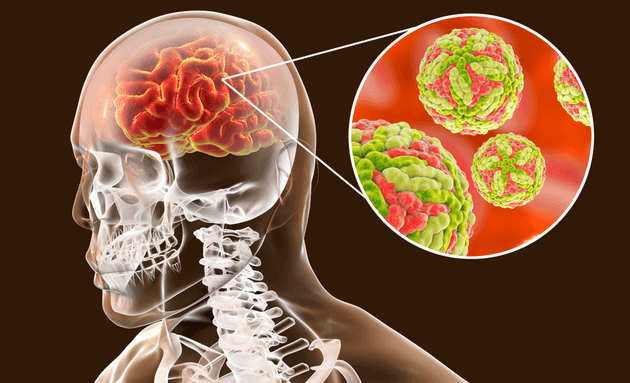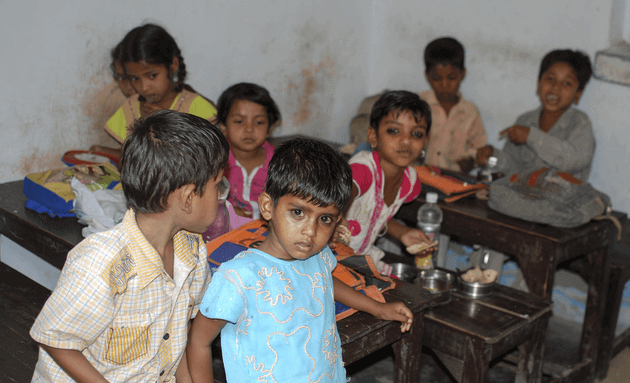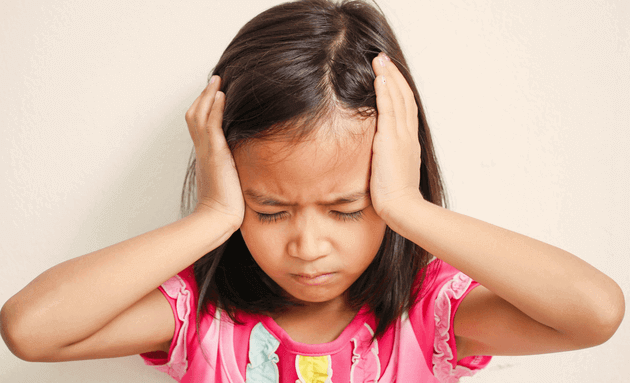Acute Encephalitis Syndrome and Children : What You Need to Know
At least 140 children have reportedly succumbed to the ‘chamki bukhar’, or Acute Encephalitis Syndrome in Bihar, and over 600 children have been admitted to hospitals to monitor symptoms of this deadly disease. What is this recurring epidemic that has struck India once again? And is your child at risk of getting this fatal disease? Here’s what you need to know about encephalitis.
What is Acute Encephalitis Syndrome?

Acute Encephalitis, also known as virus encephalitis or aseptic encephalitis, is a rare condition of brain inflammation that mostly affects children, the elderly, or people who have a weak immune system.
Most cases of acute encephalitis are caused due to a certain kind of virus and are more often than not fatal. The last massive outbreak of encephalitis in India in 2014 caused the death of 355 people, followed by 11 deaths in 2015, 4 in 2016, and 11 in 2017.
More than 100 viruses like measles, mumps, polio, rabies, rubella, and chickenpox, are known to be causative agents of encephalitis. The disease can cause an inflammation of the brain tissue that can destroy your nerve cells, cause internal bleeding or brain damage and can eventually lead the way for more severe forms of encephalitis such as hemorrhagic or necrotising encephalitis.
The early warning signs of encephalitis include headache, fever, and altered consciousness that progresses at a fast pace and eventually cause fatalities.
Who is at Risk of Encephalitis?

While children are at the highest risk of being affected by encephalitis-causing viruses, others at risk of this condition are:
- People recovering from certain diseases like HIV/AIDS,
- People who take immune-suppressants,
- People above the age of 50,
- People with a weakened immune system
Apart from viruses, other sources such as bacteria (spirochetes), fungi, parasites, chemicals, and toxic substances are also known to be causative agents of encephalitis.
What are the Symptoms and Warning Signs of Encephalitis?

Signs and symptoms for encephalitis that you should watch out for are:
- Fever and a general feeling of sickness
- Headache and loss of energy
- Poor appetite
- Nausea and vomiting
- Stiffness that can lead to coma in severe cases
- Confusion and personality changes
- Memory loss, drowsiness, and hallucinations
- Seizures and problems with speech and hearing
In infants, the warning signs of encephalitis are:
- Vomiting
- A full or bulging soft spot on the front or back of the head (also called fontanels and are a sign of fluid buildup or brain swelling)
- Light sensitivity
- Stiffness in the body
- Seizures
- Skin Rashes
- Lethargy or lack of energy
- Increased irritability
What Are the Possible Causes of Encephalitis in Children?

Three groups of viruses are the main cause of encephalitis:
- Viruses that cause common childhood infections such as measles, mumps, and German measles
- Herpes viruses such as chicken pox, Epstein-Barr virus (EBV), and herpes simplex
- Germs transmitted by insects like the West Nile Virus, and germs that cause Lyme disease and Rocky Mountain Spotted Fever (caused by ticks)
2019’s outbreak of encephalitis-like symptoms in children in Bihar has sparked multiple discussions on the plausible causes of this disease. Some of the major postulated reasons are:
-
-
Soaring Temperatures: Heat and humidity have been a common factor in the spikes of reported cases of encephalitis in Bihar. The state witnessed high temperatures in the range of 40 degrees Celsius and above in 2019, which has led to multiple heat strokes and an insurgence of reported cases of encephalitis in the state.
-
Malnutrition: Hypoglycemia, or low blood sugar, is a major contributing factor to encephalitis attacks and has a direct relation to malnutrition and lack of proper health programmes in place. The 2019 outbreak is suspected to have erupted from the litchi fruit and has seen a cyclical pattern during the harvest season. Children are more prone to consuming fallen fruits, staying out in the sun without proper food, and getting dehydrated - which could have lead to the outbreak once again.
-
Lack of Awareness: Rural areas have seen the most cases of this virus and can be associated with a lack of awareness and understanding. Most affected and their families are not aware of the threats or prevention and precaution methods, thereby making them more susceptible to such viruses than usual.
-
Is Encephalitis Contagious?
Encephalitis is a brain inflammation condition and is not contagious. However, the virus causing Acute Encephalitis Syndrome may be contagious. It is best to adopt preventive measures, especially during an outbreak, to ensure complete safety of yourself and those around you.
How Can Encephalitis Be Treated?
Acute encephalitis, when diagnosed early, needs to be treated under expert medical guidance, especially for children. They are usually treated in ICUs while a medical expert monitors their heart rate, blood pressure, breathing, and body fluids, and administer specific medications to stop further inflammation of the brain tissue.
Anticonvulsants, corticosteroids, and certain antiviral drugs are used to control the symptoms and prevent further damage.
What Can You Do To Prevent Encephalitis?

You can avoid diseases that can lead to encephalitis, especially with children. Here are a few preventive measures you can take:
- Immunisations: Protect your kids from common infections and conditions by getting them immunised according to the schedule recommended by your doctor
- Avoid contact: Take extra care to avoid being around people who are already affected by the virus causing encephalitis
- Maintain hygiene: Ensure your children wash their hands and maintain an antiseptic hygiene regime, especially after coming back from outside
- Avoid Mosquito Bites: Stay indoors after sunset, use mosquito repellents and nets, avoid waterlogged spots in and around your neighbourhood as these can be mosquito breeding sites and wear protective clothing whenever you step outside
- Avoid Tick Bites: Make sure your child is not playing with soil, leaves, vegetation and stray animals. Ensure your pets are tick-free and healthy
Since the outbreak of this cyclical epidemic once more in India, it is of utmost importance that you keep yourself and your child safe by adopting preventive and precautionary measures. Get yourself checked by a medical expert in case you or your child is experiencing any of the signs or symptoms of encephalitis.




